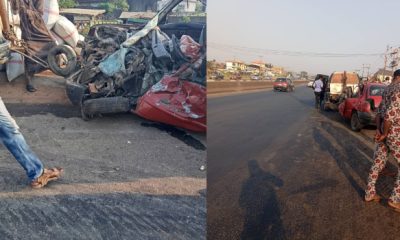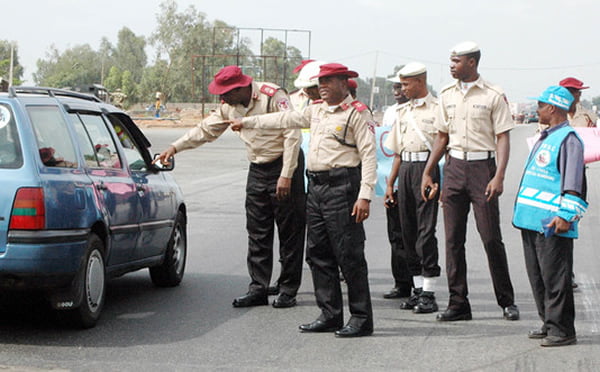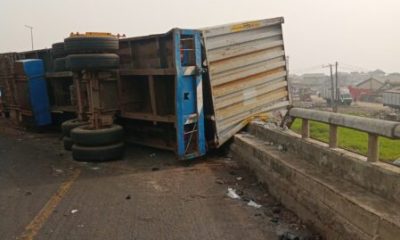Featured
See Vital Documents You Must Tender To Law Enforcement As A Car Owner In Nigeria
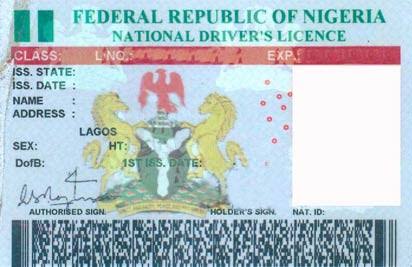
Owning a car makes daily commuting an easy thing to do, but it comes with many responsibilities such as securing vital documents from relevant authorities.
For example, it’s illegal to drive on Nigerian roads without a valid driver’s licence. Doing so exposes a car owner to avoidable heavy fines and delays.
EDITOR’S PICKS
-
Doyin Okupe Resigns As Obi-Datti Campaign DG After Money Laundering Conviction
-
2023: “Cross River Will Play Leading Role In Our Economic Uplift” – Tinubu Woos Voters
In this article, Eko Hot Blog lays out seven vital documents that you must tender to the men of Nigerian law enforcement agencies when requested.
1. Vehicle registration certificate
The vehicle registration certificate, also known as the “vehicle particulars card,” is issued by the Federal Road Safety Corps (FRSC) and serves as proof of ownership of the vehicle. It contains important information about the vehicle, including the make, model, and year of manufacture, as well as the owner’s name and address. This document must be presented to the police when requested, as it serves as evidence of ownership and can be used to track down the owner in case of an accident or other emergency.
2. Insurance certificate
It is a legal requirement for all vehicles in Nigeria to be insured against third party liability. The insurance certificate is issued by the insurance company and serves as proof that the vehicle is insured. It should be presented to the police when requested, as it serves as evidence that the vehicle is covered in case of an accident or other emergency.
3. Driver’s licence
A driver’s licence is required to operate a motor vehicle in Nigeria. It is issued by the FRSC and serves as proof that the driver has passed the necessary tests and is qualified to operate a vehicle. The driver’s licence must be presented to the police when requested, as it serves as evidence that the driver is qualified to operate the vehicle.
4. Roadworthiness certificate
The roadworthiness certificate, also known as the “vehicle inspection report,” is issued by the FRSC and serves as proof that the vehicle is in good condition and meets the necessary safety standards. This document must be presented to the police when requested, as it serves as evidence that the vehicle is safe to operate on the roads.
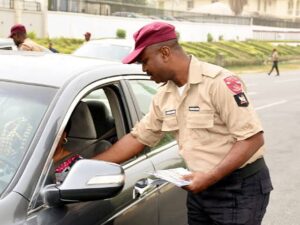
A FRSC officer inspecting a car owner’s documents
5. Vehicle licence
The vehicle licence, also known as the “vehicle licence plate,” is issued by the FRSC and must be displayed on the front and rear of the vehicle. It serves as identification for the vehicle and must be presented to the police when requested, along with the other documents listed above.
6. Vehicle maintenance records
In order to ensure that a vehicle is safe to operate on the roads, it is important to keep track of its maintenance and repairs. Vehicle maintenance records should be kept up to date and presented to the police when requested, as they can serve as evidence of the vehicle’s overall condition and can be used to demonstrate that the vehicle is being properly maintained.
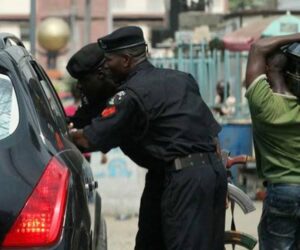
Police officers inspecting a car owner’s documents
7. Traffic violation records
If a vehicle has been involved in any traffic violations, such as speeding or running a red light, the police may request to see the traffic violation records. These records can be used to determine the driver’s responsibility in the event of an accident or other emergency.
FURTHER READING
In conclusion, it is important for car owners in Nigeria to ensure that they have all of these documents on hand at all times to avoid any issues when interacting with law enforcement agents.
Click here to watch our video of the week:
Advertise or Publish a Story on EkoHot Blog:
Kindly contact us at [email protected]. Breaking stories should be sent to the above email and substantiated with pictorial evidence.
Citizen journalists will receive a token as data incentive.
Call or Whatsapp: 0803 561 7233, 0703 414 5611


